According to the Vatican, the preparatory document is “a tool to facilitate the first phase of listening to and consulting the people of God in the particular Churches” for the Diocesan phase of the Synod.
One objective of the Synod on Synodality, according to the preparatory document, is to encourage a participative and inclusive process that offers everyone, especially those who for various reasons find themselves on the margins, the opportunity to express themselves and to be heard in order to contribute to the edification of the people of God.
In the August 5 interview with ACI Africa, Bishop Carlassare recalled the orientation they had “on synodality as it has been proposed by the universal church” during which documents related to the preparation for the next Synod were studied.
During these sessions, the Italian-born Bishop who has ministered in South Sudan since 2005 said, participants “worked in groups to answer the questionnaire proposed by the church.”
Participants in the Diocesan Week on Synodality sought “to understand where we are as the church of Rumbek within the universal church,” he said, adding that deliberations were toward establishing “a common path of faith and ministry in a changing and challenging world.”
(Story continues below)
“We looked at the reality of the diocese of Rumbek,” he went on to recall the sessions of July 28, and added, “Some commissions reported about the work done during the last year and the challenges that we still have to face.”
Participants in the Diocesan Week on synodality came up “many proposals” with regard to “doing synodality” in Rumbek Diocese, Bishop Carlassare whose Episcopal Ordination had to be postponed to 2022 after he was attacked and shot in both legs said.
As a way forward, four committees were established “with specific tasks”, he said, referencing the Pastoral, Liturgical, and Catechetical (PALICA) committee, the youth committee, the Catholic education committee, and the human formation committee.
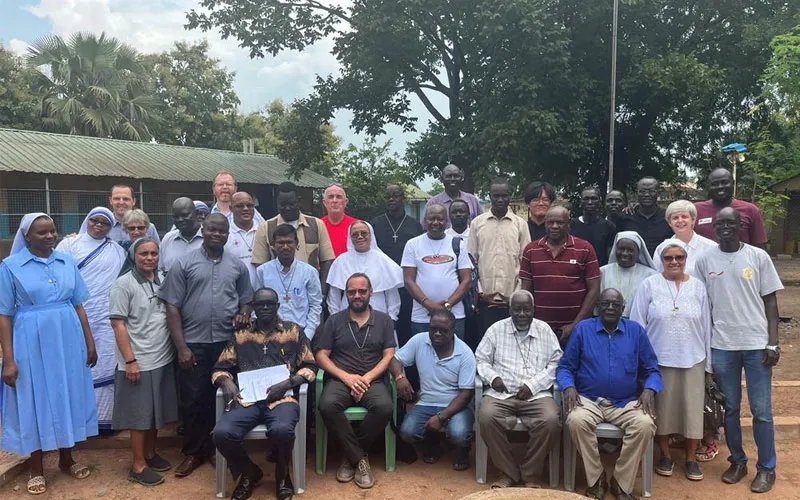 Some of the participants in the July 25-30 Diocesan Week on Synodality in Rumbek Diocese, South Sudan. Credit: Courtesy Photo
Some of the participants in the July 25-30 Diocesan Week on Synodality in Rumbek Diocese, South Sudan. Credit: Courtesy Photo
While the PALICA committee will facilitate the generation and realization of “new pastoral initiatives in collaboration with parishes and other pastoral premises (such as) share material, ideas and study ways to promote our Pastoral activities,” the Bishop said, members of the youth committee have the task of generating “a program for the youth with initiatives that will foster participation and a real growth in faith.”
The Catholic education committee is to “reinforce the Catholic identity of our schools, foster holistic formation, extra-curricular activities for spiritual formation, help form CRE teachers, give them Catholic formation … (and) support the Education Office,” Bishop Carlassare said.
As for the human formation committee, members will have the task of spearheading initiatives to “accompany and care for the human formation of our seminarians, clergy and religious missionaries, and lay pastoral agents,” the 44-year-old Bishop told ACI Africa.
“We approved the statutes of the Presbyteral Council, we elected the members and gave the mandate,” he went on to recall the activities of July 29, and added, “In the afternoon the Presbyteral Council proposed the names for the college of consultors. Committees, Presbyteral Council and College of Consultors are all means to take up synodality and make it real.”
The South Sudanese Diocese is planning for a Diocesan Pastoral Assembly in February 2023 that will see the coming together of representatives from the 16 Parishes of the Diocese, and the Diocesan coordination departments and offices.
ACI Africa was founded in 2019. We provide free, up-to-the-minute news affecting the Catholic Church in Africa, giving particular emphasis to the words of the Holy Father and happenings of the Holy See, to any person with access to the internet. ACI Africa is proud to offer free access to its news items to Catholic dioceses, parishes, and websites, in order to increase awareness of the activities of the universal Church and to foster a sense of Catholic thought and culture in the life of every Catholic.
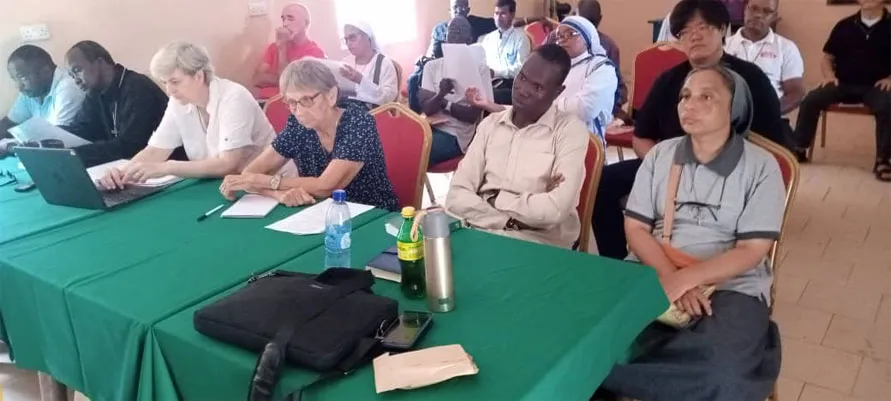 A section of participants in the July 25-30 Diocesan Week on Synodality in Rumbek Diocese, South Sudan. Credit: Courtesy Photo
A section of participants in the July 25-30 Diocesan Week on Synodality in Rumbek Diocese, South Sudan. Credit: Courtesy Photo


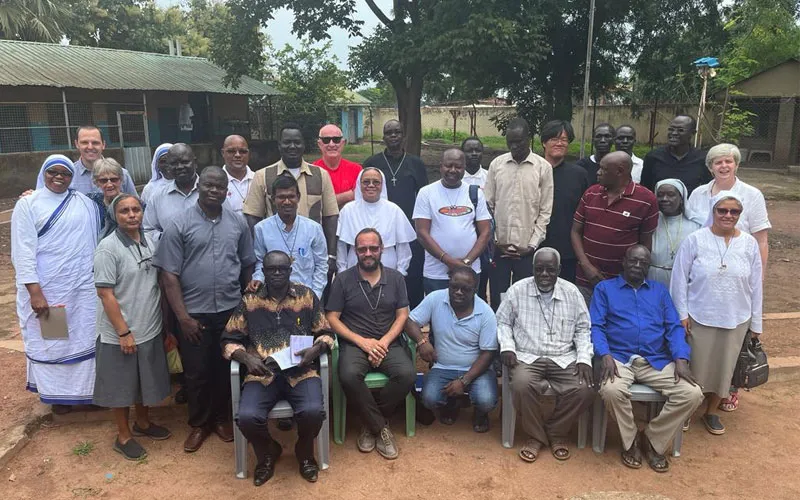
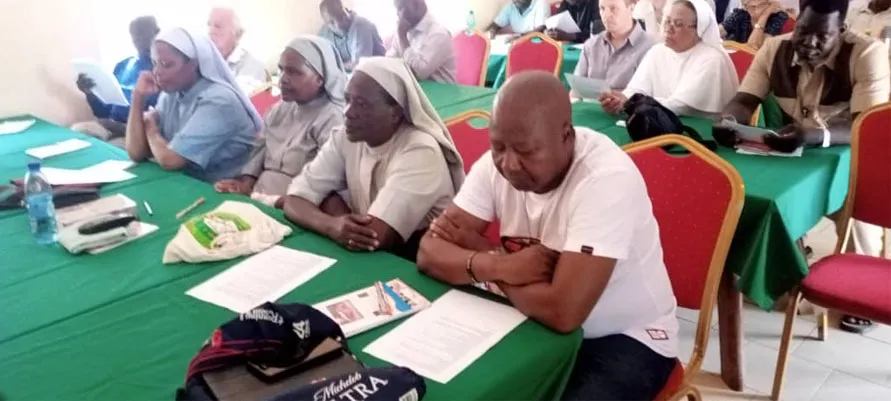 A section of participants in the July 25-30 Diocesan Week on Synodality in Rumbek Diocese, South Sudan. Credit: Courtesy Photo
A section of participants in the July 25-30 Diocesan Week on Synodality in Rumbek Diocese, South Sudan. Credit: Courtesy Photo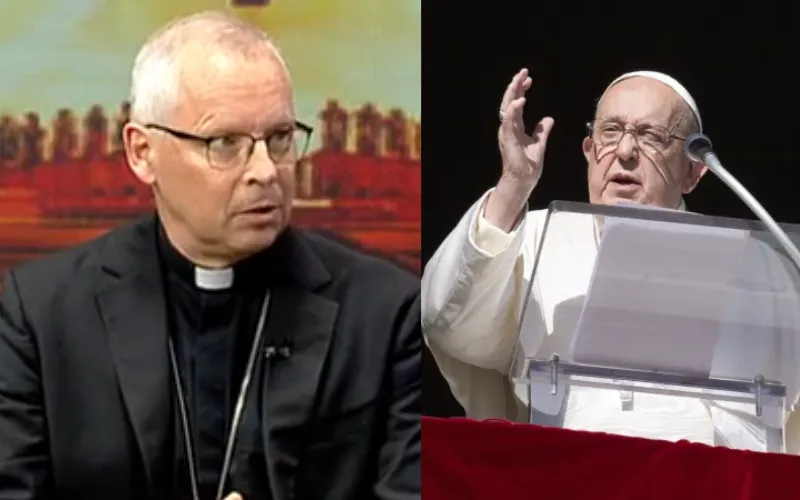
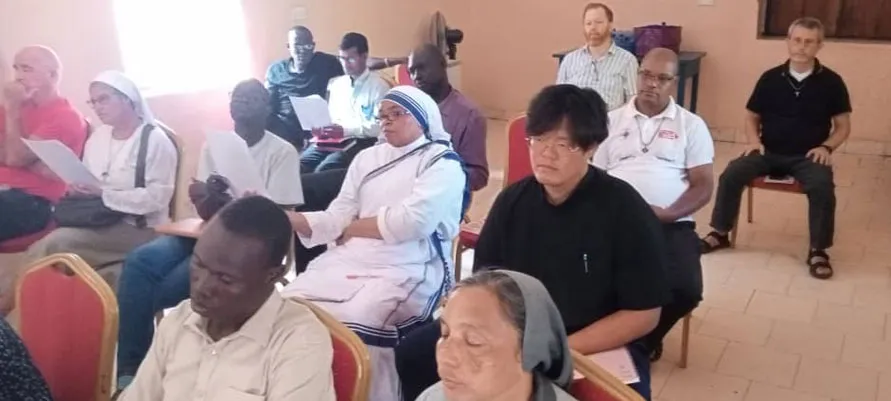 A section of participants in the July 25-30 Diocesan Week on Synodality in Rumbek Diocese, South Sudan. Credit: Courtesy Photo
A section of participants in the July 25-30 Diocesan Week on Synodality in Rumbek Diocese, South Sudan. Credit: Courtesy Photo Some of the participants in the July 25-30 Diocesan Week on Synodality in Rumbek Diocese, South Sudan. Credit: Courtesy Photo
Some of the participants in the July 25-30 Diocesan Week on Synodality in Rumbek Diocese, South Sudan. Credit: Courtesy Photo


